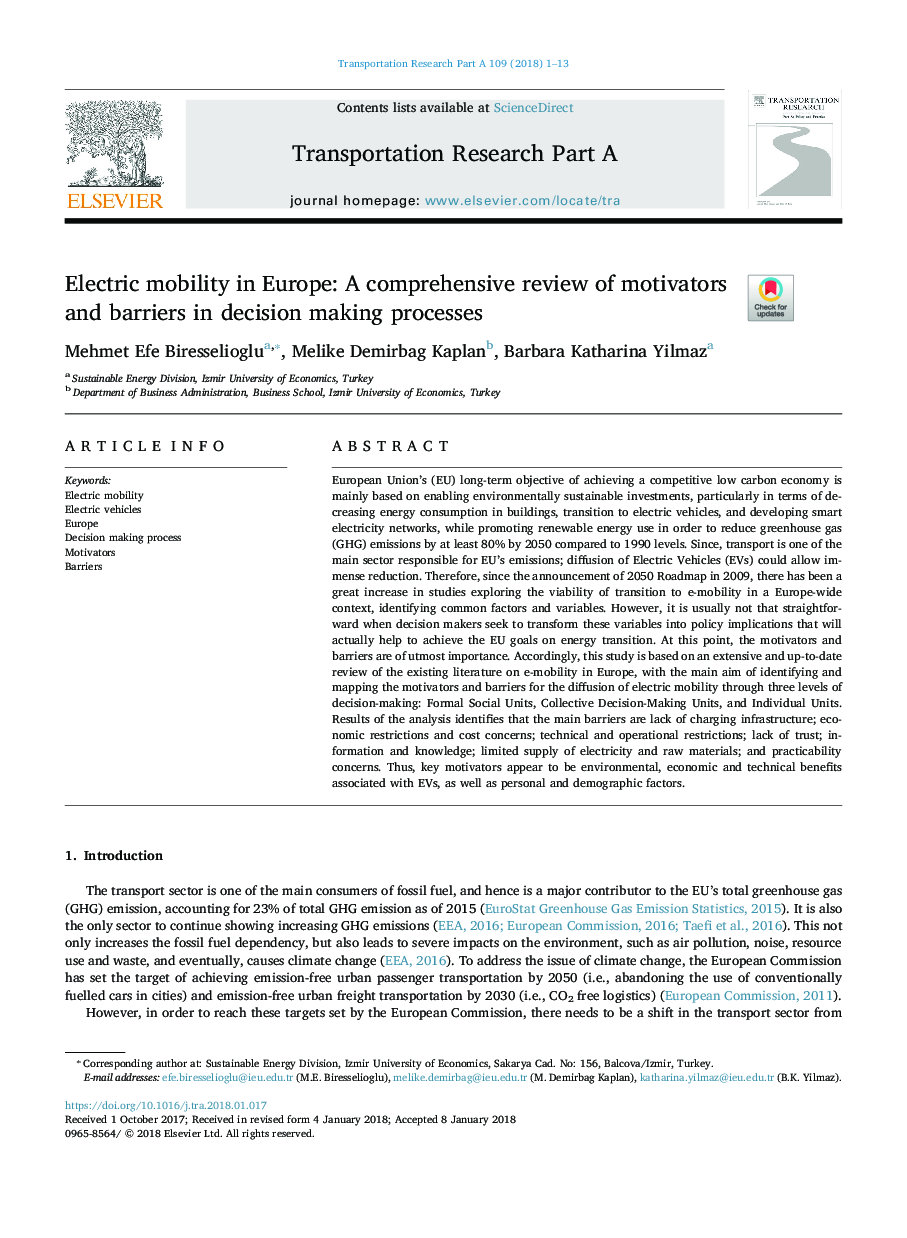| کد مقاله | کد نشریه | سال انتشار | مقاله انگلیسی | نسخه تمام متن |
|---|---|---|---|---|
| 6780453 | 1432191 | 2018 | 13 صفحه PDF | دانلود رایگان |
عنوان انگلیسی مقاله ISI
Electric mobility in Europe: A comprehensive review of motivators and barriers in decision making processes
ترجمه فارسی عنوان
تحرک الکتریکی در اروپا: بررسی جامع انگیزه و موانع در پروسه های تصمیم گیری
دانلود مقاله + سفارش ترجمه
دانلود مقاله ISI انگلیسی
رایگان برای ایرانیان
کلمات کلیدی
تحرک الکتریکی، وسایل نقلیه الکتریکی، اروپا، فرایند تصمیم گیری، انگیزه، موانع،
موضوعات مرتبط
مهندسی و علوم پایه
سایر رشته های مهندسی
مهندسی عمران و سازه
چکیده انگلیسی
European Union's (EU) long-term objective of achieving a competitive low carbon economy is mainly based on enabling environmentally sustainable investments, particularly in terms of decreasing energy consumption in buildings, transition to electric vehicles, and developing smart electricity networks, while promoting renewable energy use in order to reduce greenhouse gas (GHG) emissions by at least 80% by 2050 compared to 1990 levels. Since, transport is one of the main sector responsible for EU's emissions; diffusion of Electric Vehicles (EVs) could allow immense reduction. Therefore, since the announcement of 2050 Roadmap in 2009, there has been a great increase in studies exploring the viability of transition to e-mobility in a Europe-wide context, identifying common factors and variables. However, it is usually not that straightforward when decision makers seek to transform these variables into policy implications that will actually help to achieve the EU goals on energy transition. At this point, the motivators and barriers are of utmost importance. Accordingly, this study is based on an extensive and up-to-date review of the existing literature on e-mobility in Europe, with the main aim of identifying and mapping the motivators and barriers for the diffusion of electric mobility through three levels of decision-making: Formal Social Units, Collective Decision-Making Units, and Individual Units. Results of the analysis identifies that the main barriers are lack of charging infrastructure; economic restrictions and cost concerns; technical and operational restrictions; lack of trust; information and knowledge; limited supply of electricity and raw materials; and practicability concerns. Thus, key motivators appear to be environmental, economic and technical benefits associated with EVs, as well as personal and demographic factors.
ناشر
Database: Elsevier - ScienceDirect (ساینس دایرکت)
Journal: Transportation Research Part A: Policy and Practice - Volume 109, March 2018, Pages 1-13
Journal: Transportation Research Part A: Policy and Practice - Volume 109, March 2018, Pages 1-13
نویسندگان
Mehmet Efe Biresselioglu, Melike Demirbag Kaplan, Barbara Katharina Yilmaz,
